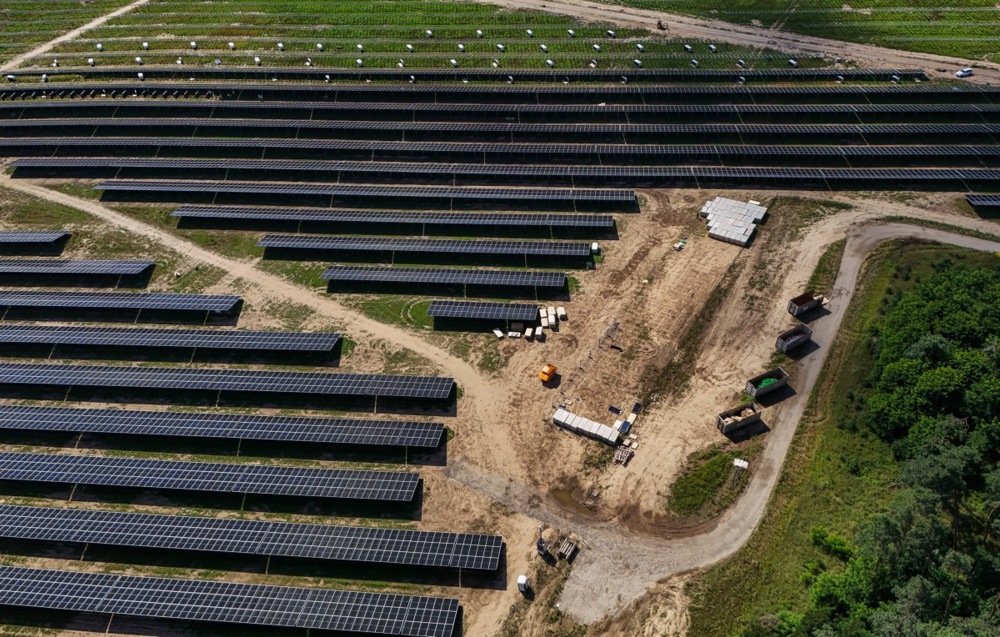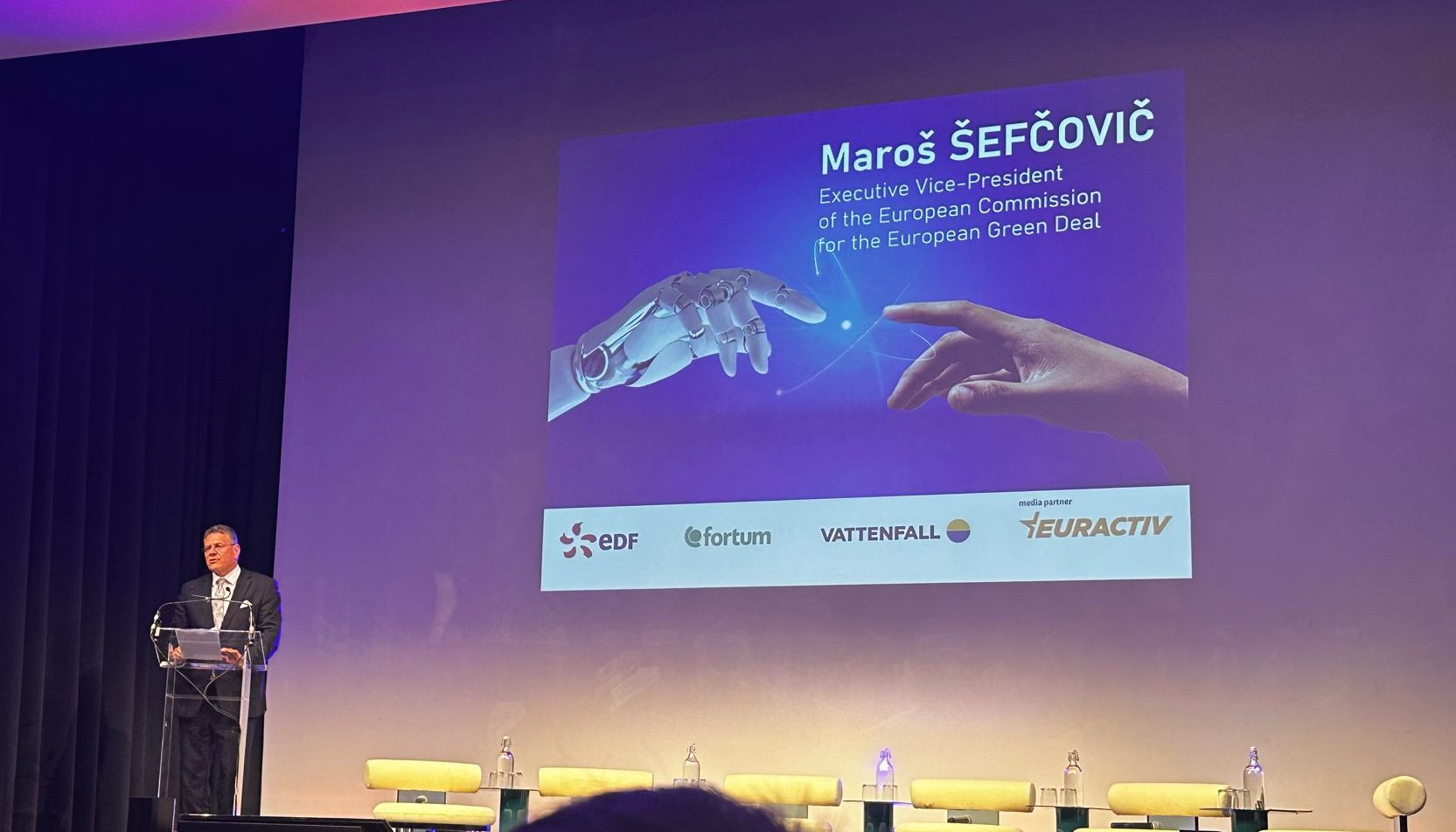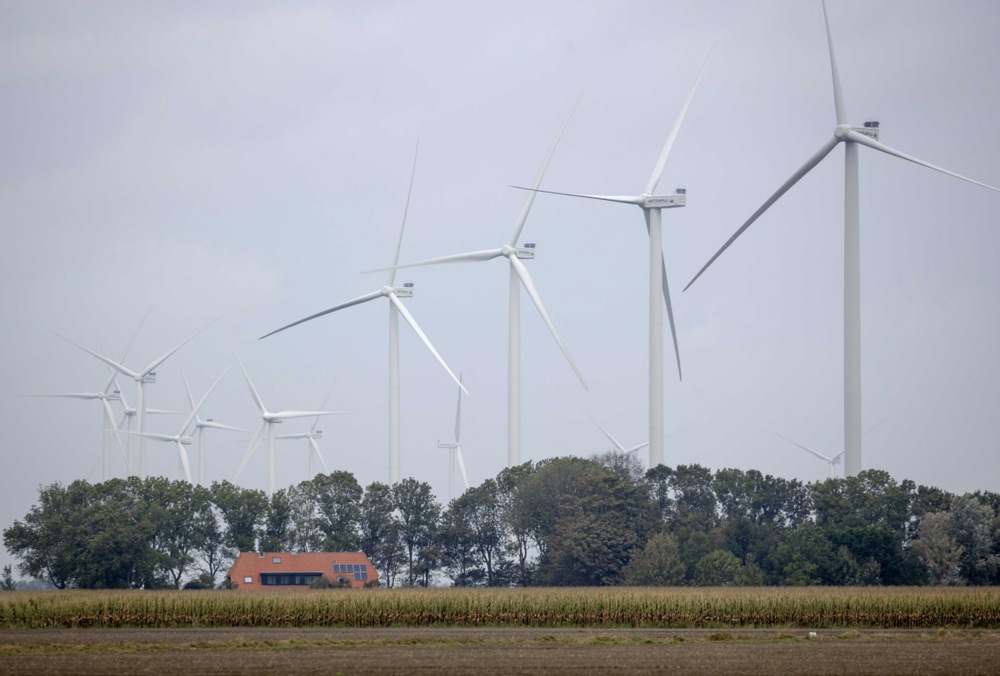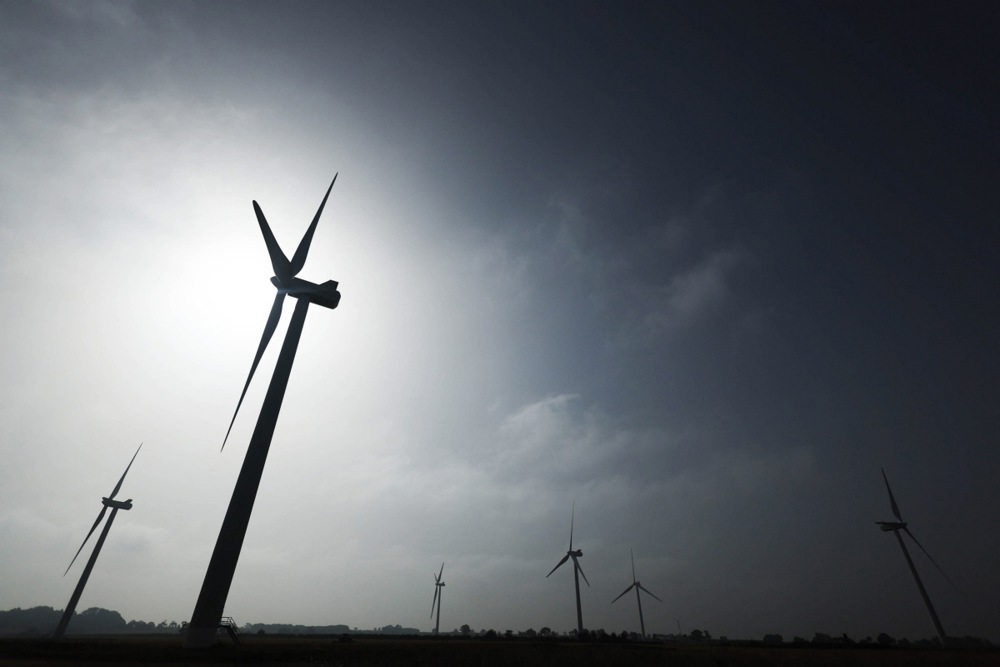Northvolt, the Swedish battery company supposed to put fire to the feet of American and Chinese competition in battery making, is running out of steam fast, losing money and investors at speed.
The battery factory is viewed as a crucial component of the European Green Deal and the push for greater autonomy in energy and electric vehicle production. It received a lot of EU money to achieve this.
But rather than being an independent green innovator, Northvolt uses old Chinese technology, with 20-year-old equipment that was already out of date when put in place.
Moreover, the Skellefteå factory has seen three unexplained deaths among its employees in 2024, with the incidents being investigated by the police.
There are also reports about toxic waste, dangerous gases and a lack of proper safety equipment. Equipment displays are in Chinese and Swedish workers at Northvolt use Google Translate to run them.
Yet surfing on the state-supported Green wave Northvolt was able to acquire billions. However, on October 8, it was forced to announce that one of its subsidiaries had filed for bankruptcy after the cancellation of a major project.
In early September, the company announced it would close down, sell, or consolidate factories in the European Union and the United States.
It even had to announce it would cut over 20 per cent of its worldwide workforce. In Sweden, it would be one in four workers, or 1,600 jobs.
Asked about how this was possible as the battery producer acts in a key sector, electrification and industrial autonomy, to be part of a crucial shift in car making — a priority of the European Commission — Christian Sandström, senior associate professor in digital business at the Jönköping International Business School, said he was not surprised, as he holds a very negative view on Northvolt.
“I was the most pessimist person in Sweden about the company, but things turned out to be much worse than I thought,” Sandström told Brussels Signal. “Northvolt is reliant upon Wuxi Lead Intelligent Equipment, a Chinese supplier of equipment, since early on.”
Sandström says that the Swedish company almost went for a Korean supplier a couple of years ago, but was convinced to stick with the Chinese, something he labels “incredible”, as the main reason why Northvolt got all that backing in Europe was supposed strategic autonomy from China.
Wuxi has close ties to the Chinese communist regime. “Nobody seems to be checking on anything as long as there is a connecting with the green transition”, Sandström notes, in fact, the green pitch serves as “a smokescreen, covering up incompetence and mismanagement that is hard to grasp, but quite present.”
Sandström notes he does not blame the Chinese for anything, they act in their own best interest, but he does blame the management of Northvolt.
“Peter Carlsson, the CEO, came from Tesla, with the narrative that he was a disciple of Elon Musk, knew his stuff. ‘If anyone can make such a gigafactory, it would be him’, was the pitch.”
“Moreover, with Tesla, he was responsible for purchasing and logistics, exactly the areas where Northvolt most spectacularly failed.”

When asked about relying on China due to its lead in battery technology, Sandström acknowledged China’s superiority and control over key minerals, which amplified its advantage. However, he emphasised that this makes it even more crucial for Europe to establish its own autonomy and manage the challenge independently.
Now, Sandström believes, the company is faced with a challenge impossible to address, one that its leadership is fully aware places them in deep trouble.
“The CEO raised more capital and then sold shares worth 200 million SEK (€17 million), quite remarkable”.
Christian Sandström points out that the entire enterprise is funded with debt, meaning that anyone who wants to invest will see all their new equity be used to pay off interests on those debts and to pay off creditors. “Structurally, Northvolt is very vulnerable to problems, it’s a house of cards.”
He says he’s surprised they’re not bankrupt yet and even believes maybe next Monday, October 14, may be a watershed moment, as it is due to pay its tax bill of 260 million SEK (€23 million) to the Swedish tax authority,
“When you can’t pay taxes, the board of directors becomes personally liable. Given this risk, it’s highly unlikely they’ll be willing to cover the cost themselves, causing mounting pressure on them to declare bankruptcy before Monday to avoid further personal financial exposure,” Sandström says.

“A lot of the capital raising took place by bringing in debt, not equity. Debt is not a problem until there are problems. But when problems mount, creditors will knock on your door and bankruptcy can come about quickly. That’s what’s happening right now.”
He notes that the model of Northvolt, which appears to be the model of many Green Deal projects, exists in essence of using debt to finance start-ups that will make substantial losses to begin with.
“Governments have created a fertile soil for green bubbles. When imposing new regulations and offering large amounts of Other People’s Money, the EU has created an environment where no risk is too big as someone else is taking care of the bill.
“And as someone else is paying, a consensus culture emerges in a society where nobody is asking critical questions – until it’s too late.”
Sandström called the model “preposterous”, but also “an opportunity for political capitalists.”
Some Swedish entrepreneurs that have received a lot of funds with so-called Green projects seem to have created a playbook, Sandström notes, based on marketing and networking while they capitalise on political pressure and taxpayer money.
While they were eager to appear in front of the camera in the early days of their project, they now look to stay out of the limelight. During a meeting in September, Northvolt CEO Peter Carlsson even urged his staff not to talk to journalists.
Sandström says that Northvolt reminds him of H2Green Steel, a company promising to make steel producing little emissions but now seems to be falling apart after the leadership earned a lot of money.
“In Sweden, capitalists in Stockholm have made use of billions to offer re-industrialization of the rural north, green jobs, flourishing exports and strategic autonomy. But when it sounds too good to be true, maybe it is too good to be true.”
Recently, H2Green Steel changed its name to Stegra. It has production problems and it is desperately looking for subsidies. Strega received €100 million in Swedish state aid, a portion of the €265 million pledged to the company. Altogether, it secured €6.5 billion in funding, although production isn’t expected to begin until 2026.
In September, the Swedish National Audit Office said in its report that there is a lack of comprehensive planning and risk assessment with Stegra.
“The capitalism that flourished in the Green Deal era is toxic. Governments shoulder the risks and costs, while private interests profit from speculative promises of future gains.
“These companies monetise their promises when raising capital, extracting significant financial benefits without taking on any real risk themselves, leaving the burden on the public”, Sandström noted.
He said that the Draghi plan only “puts more gasoline on the fire.”

Adding insult to injury, the Chinese machines in Sweden are not even top-of-the-line, but 20-year-old machines.
Sandström said he spoke with a senior engineer from Northvolt, who said the technology was already outdated when it was put in place.
“Wuxi is a company with a high standing in the battery industry, but it has delivered old equipment to Northvolt.”
“Hundreds of guest workers from China have been operating the machines in Sweden. Displays are in Chinese and Swedish workers at Northvolt use Google Translate to run them.”
Some Swedish commentators even suggest this was done intentionally by China, to prevent Northvolt from becoming self-reliant.
Sandström points out that when machines are old, have poor quality and are not even in Swedish, it is no wonder accidents happen, not unlike in China itself, where protection for employees and the environment is less important than in Europe.
Worse than accidents, the Skellefteå factory has seen three unexplained deaths among its employees in 2024, researched by the police.
In January, a 33-year-old father of three was found dead in his bed after an evening shift at Northvolt. A month later, a 19-year-old, who also worked at the factory, was found dead in his bed. In June, a man in his 60s was found dead on his balcony after work.
There are also reports about toxic waste, dangerous gases and a lack of proper safety equipment. One employee told Dagens Arbete, a union magazine, about a colleague who got permanent nosebleeds and later lost her fingernails.
Last summer, Dagens Nyheter, Sweden’s biggest newspaper, reported about 26 serious workplace accidents in five years, including lost body parts and explosions.
On October 9 SVT Nyheter, Sweden’s public broadcaster, revealed that there have been 47 accidents with what the Swedish Work Environment Authority called “particularly hazardous chemicals” at Northvolt.
“Battery production at Northvolt takes place with a number of substances and chemicals that in some cases are fatal to humans. The substances are carcinogenic, mutagenic or reproductive disruptive”, SVT Nyheter wrote.
Replying to questions by Brussels Signal, Matti Kataja, Director of Communication and Public Affairs at Northvolt said that the company would not comment on the questions surrounding its reported financial issues.
“We do not comment on speculation,” they said.
“It is no secret that we are working on a funding round in which we have recently seen significant progress. We hope that we will be able to share more information as soon as possible.”
Regarding the Chinese origin of its machines, Kataja said, “We use equipment from different suppliers; however, we never comment on agreements or collaborations with individual suppliers.”
“We are running an acceleration programme aimed at increasing production volumes. The program has already yielded results and contributed to a tripling of cell production at our factory Northvolt Ett since the beginning of the year.”
In an earlier reply to SVT regarding the many accidents, Northvolt’s Communications Director said “If we can’t work safely, we don’t work at all. Our operations are surrounded by rigorous safety arrangements and are subject to strict environmental permits.”
Kataja stressed that the company reports all incidents to the Swedish Work Environment Authority and investigates them.
The European Investment Bank, which invested heavily in the company, told Brussels Signal it “is closely monitoring the situation, but we cannot comment on specific questions at this stage.”
“We will continue to support strategic industries driving the transition to a net zero economy and homegrown innovation in breakthrough technologies, which is key to Europe’s prosperity, strategic autonomy, industrial excellence, and more sustainable growth.”





